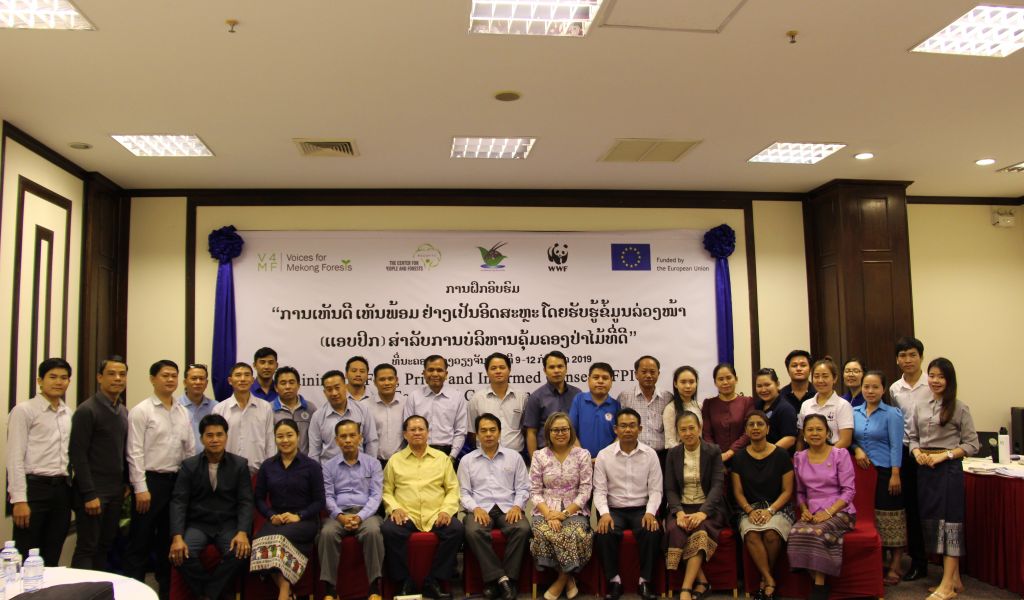The training on "Free, Prior, Informed Consent for Good Governance"

From 9-12 July, RECOFTC organized a training workshop under the EU-funded Voices for Mekong Forests Project (V4MF) on free, prior and informed consent for good governance in Vientiane, Lao PDR. Lao Biodiversity Association (LBA) and the World Wide Fund for Nature (WWF) co-hosted the training.
Chairperson Khambang Thiphavong, programme manager of Lao Biodiversity Association (LBA) and vice president of Lao PDR’s Forest Law Enforcement, Governance and Trade (FLEGT) network, opened the workshop.
Participants included staff from civil society organizations and government departments including the Department of Forestry, Department of Forest Inspection, FLEGT Standing Office, and the Provincial Agriculture and Forestry Offices of Xayaboury and Attapeu Provinces. These participants work with target communities to generate better understandings of free, prior and informed consent and integrate FPIC into their projects.
Free, prior and informed consent is a specific right for indigenous peoples recognized under the United Nations Declaration of the Rights of Indigenous People (UNDRIP). It highlights that indigenous and local communities have a right to give and withhold consent and take part in decisions, policies and activities that affect them. FPIC aims to avoid the removal of indigenous people and communities from their lands due to development.
FPIC was initially used under climate-related negotiations, especially in the context of safeguards for REDD+. However, in recent times, FPIC has also been used for development projects associated with forestry or forest-related activities. This includes timber, oil palm, infrastructure development and dam construction. Communities directly affected by these projects may see negative repercussions like the loss of land, tenure and livelihoods or weakened rights of expression and participation in the decision making process.
The July training was held over four days and included a one-day field visit to Ban Yai Nachalern, Sangthong District, Vientiane Province. RECOFTC’s Lao Country Program and Regional Office facilitated the training with Lao Biodiversity Association.
The main objective of the training was to enable participants to explain the key principles and supporting values of FPIC in the forestry context and to discuss how FPIC is important in promoting good governance in forestry-related initiatives. The training also helped to identify initial design steps in implementing processes that respect local communities’ rights through FPIC and develop action points for interventions that can promote good governance through applying FPIC in their own work contexts.
FPIC “is new for me but it is a very important tool for project planning and implementation,” said Chantha Ouanthavongsy, a trainee. “APEDC will try to raise awareness and apply FPIC to our activities in communities to encourage them especially the ethnic groups to participate in decision making process.”
The promotion of FPIC may lead to improved forest governance and respect for the rights of various marginalized actors. Furthermore, FPIC has also become a standard that is encouraged for businesses whose operations could have a direct effect on local and indigenous communities in the region. In forest-related initiatives such as REDD+ and FLEGT, FPIC is slowly becoming the standard procedure to ensure good governance. FPIC can be one legal measure that is recognized as, not just an obligation, but also as an effective way to safeguard governance.

